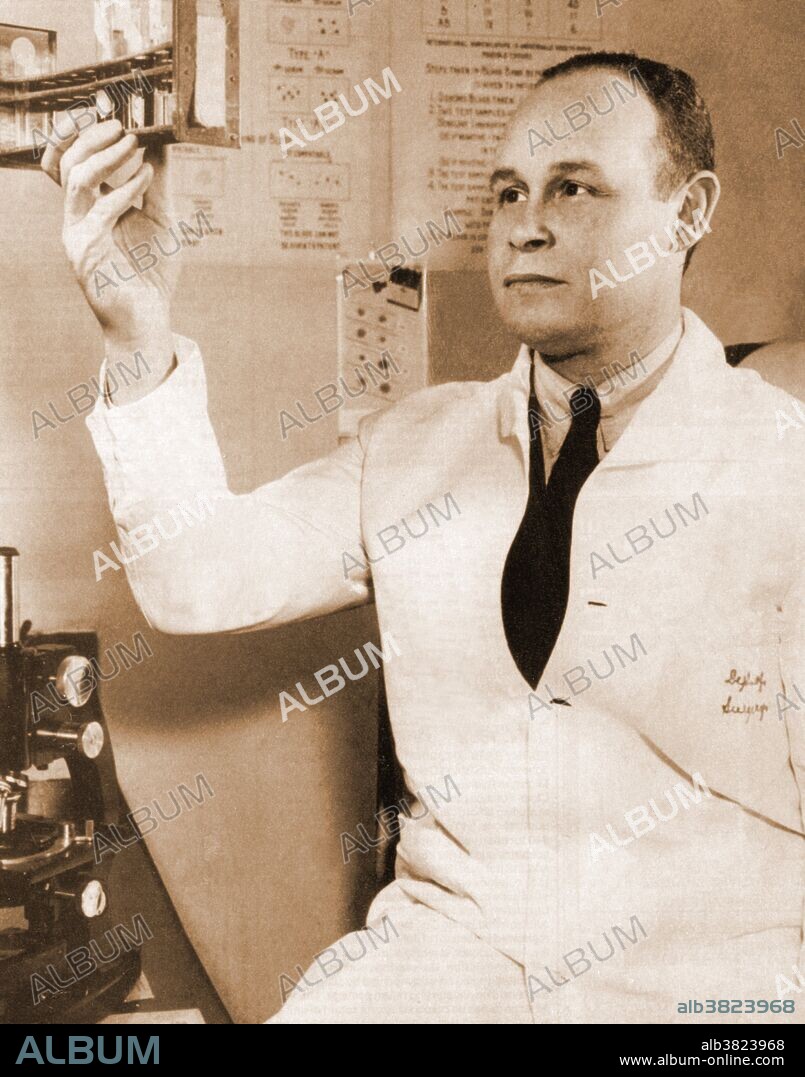alb3823968
Charles R. Drew, American Surgeon and Reseacher

|
Añadir a otro lightbox |
|
Añadir a otro lightbox |



¿Ya tienes cuenta? Iniciar sesión
¿No tienes cuenta? Regístrate
Compra esta imagen.
Selecciona el uso:

Título:
Charles R. Drew, American Surgeon and Reseacher
Descripción:
Ver traducción automática
Charles Richard Drew (June 3, 1904-April 1, 1950) was an African-American physician, surgeon and medical researcher. He researched in the field of blood transfusions, developing improved techniques for blood storage, and applied his expert knowledge to developing large-scale blood banks early in World War II. This allowed medics to save thousands of lives of the Allied forces. The research and development aspect of his blood storage work is disputed. As the most prominent African-American in the field, Drew protested against the practice of racial segregation in the donation of blood, as it lacked scientific foundation, an action which cost him his job. In 1943, Drew's distinction in his profession was recognized when he became the first black surgeon selected to serve as an examiner on the American Board of Surgery. On April 1, still fatigued from spending the night before in the operating theater, Drew lost control of his vehicle. The three other physicians suffered minor injuries, but Drew was trapped with serious wounds; his foot had become wedged beneath the brake pedal. He was pronounced dead a half hour after he first received medical attention. In 1981, the United States Postal Service issued a 35¢ postage stamp in its Great Americans series to honor Drew.
Crédito:
Album / Science Source / New York Public Library
Autorizaciones:
Modelo: No - Propiedad: No
¿Preguntas relacionadas con los derechos?
¿Preguntas relacionadas con los derechos?
Tamaño imagen:
2928 x 3723 px | 31.2 MB
Tamaño impresión:
24.8 x 31.5 cm | 9.8 x 12.4 in (300 dpi)
Palabras clave:
1904 • 1950 • AFRICANO-AMERICANOS • AMERICA • AMERICANO • CIENCIA • COLOREADA • ESTADOS UNIDOS DE AMERICA • ESTADOS UNIDOS • FAMOSA • FAMOSO • FIGURA • FOTO • FOTOGRAFIA • GENTE • HISTORIA • HISTORICO • HOMBRE • HOMBRES • IMPORTANTE • LABORATORIO • MASCULINO • MEDICINAL • MEJORA • PERSONA • PERSONALIDAD • PERSONALIDADES • RETRATO DE HOMBRE • S. XX • SIGLO XX • TRANSFUSION DE SANGRE
 Pinterest
Pinterest Twitter
Twitter Facebook
Facebook Copiar enlace
Copiar enlace Email
Email
